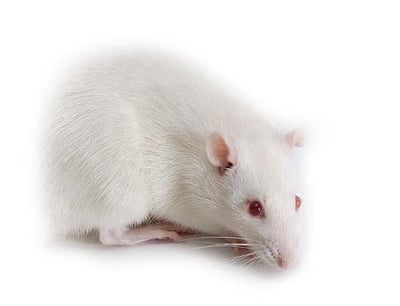Prkdc knockout rats
HsdSage:SD-Prkdcem1Sage

Strain
Location
Order Today
Typically heterozygous rats are cryo-recovered in 10-12 weeks to an age of 7 weeks old. Subsequently homozygous rats to an age of 7 weeks old can be produced within 20-22 weeks.
- Background strain: Sprague Dawley
- Homozygous knockout rats display total loss of protein via Western blot
Availability: Cryopreserved as heterozygous embryos
The Prkdc gene encodes the catalytic subunit of a nuclear DNA-dependent serine/threonine protein kinase (DNA-PK). DNA-PK is required for the non-homologous end joining (NHEJ) pathway of DNA repair, which rejoins double-strand breaks. It is also required for V(D)J recombination, a process that utilizes NHEJ to promote immune system diversity. Mature B and T cells are critical components for an adaptive immune system. DNA-PK knockout rats have severe combined immunodeficiency (SCID) and lack of both B and T cells, due to their V(D)J recombination defect. Rats deficient in the Prkdc gene produce no mature B, T or NK cells. This SCID rat is a useful model for cancer, xenografts, vaccine development, and autoimmune and infectious disease study.
Origin: The Prkdc model was originally created at SAGE Labs, Inc. in St. Louis, MO and distributed out of the Boyertown, PA facility. The line continues to be maintained through the original SAGE Labs animal inventory acquired by Envigo, then Envigo was acquired by Inotiv in 2021.

Available regions:
For pricing information, please contact us using the phone number above.

Research use and related publications
- Immunology
- Cancer metastasis
- Oncology
- Tumor cell growth
- Xenograft





